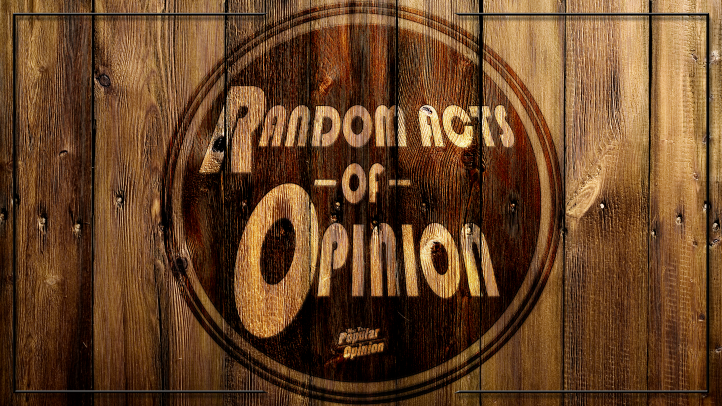

Road House is not a serious movie. Now to the fair, Road House isn’t trying to BE a serious movie. It has all the elements to be a serious movie with some real weight of drama, but Road House only seems interested in those elements insofar as they are necessary to move the plot along. Instead, what Road House director Doug Liman seemed most interested in was developing a new way to capture hand to hand movie action that appears more true to life and allows the director to put the camera, and by extension the audience, closer to it. The effect is novel and interesting but there are two questions to consider; does the effect sell dramatically and does it work towards supporting the story being told? While all of this is incredibly subjective it’s hard to make the argument that all of the effort expended served either purpose.
The Jake Gyllenhaal vehicle, loosely adapted from the 1989 Patrick Swayze film, follows notorious MMA combatant Elwood Dalton as he’s recruited by Jessica Williams’ Frankie to help protect her Florida Keyes bar, the Road House, from Billy Magnussen’s Brandt’s nefarious methods in an effort to re-develop the small community of Glass Key. After a number of failures, Brandt is saddled with the psychotic contract killer Knox (Conor McGregor) while Dalton is fending off his darker impulses and memories of the man he killed amid a budding romance with the beautiful doctor Ellie (Daniela Melchior).
Swayze’s Road House isn’t going to go down and the annals of cinema history as a monumental dramatic achievement but what it had going for it was a good balance action, drama, humor and atmosphere. It was a film that understood it’s primary goal was to be an entertaining piece of dramatic storytelling in the vein of the classic drifter/wandering hero archetype that would be evident to anyone who recognized it and irrelevant to anyone who didn’t. To either it’s benefit or detriment, depending on who you asked, the film understood itself enough to know that it couldn’t risk undermining it’s dramatic aspirations and that kept its focus on being sincere in its approach. Swayze’s Dalton is a complex character with a mysterious past much in keeping with the archetype, which Swayze then fills with his handsome charm and soulful intelligence. Possibly the standout film on director Rowdy Herrington’s relatively lean CV, the films reputation as an iconic piece of 80’s pop culture is bolstered by the fact that everyone involved wanted to make a movie that had some measure of weight.
Liman and Gyllenhaal’s Road House doesn’t suffer from the same, some might say, delusion of being a romantic drama. Gyllenhaal’s Dalton is the same archetype of a mysterious, traumatized figure but his version of the character replaces Swayze’s philosophic stoicism with a kind of dopey detachment that leeches its way into all aspects of the film. The, “MCU/ Joss Whedon” style of writing employed by screenwriters Anthony Bagarozzi and Charles Mondry (with Sheldon Turner doing an uncredited rewrite that dilutes responsibility) seems to find any excuse to undermine both the audiences intelligence and the materials potential drama, going so far as to have the films youngest character, the 12 or 13 year old daughter of the local book store owner, verbalize to the audience Dalton’s archetypal role – just in case anyone doesn’t get it. The filmmaking has very little grit or atmosphere despite the extreme detail of it’s high resolution digital capture. The cartoonish villains, especially McGregor’s Knox, are difficult to take seriously and the characters have a way of decompressing just about every moment with some humorous comment that, all tallied, tip the scales more towards annoying than amusing.
Ironically, the attempt to increase the level of realism in the films martial combat often results in a jarringly opposing effect. Liman and co came up with a 4-pass system for filming fights that combines multiple takes (an actor punching a pad, another actor being hit by a pad, the actors performing the routine slowly and a clean plate of the background) to utilize the real physics of impacts on screen as opposed to tricky camera angles and over-reacted performances to sell them. In theory this increased level of apparent, “realism” of this violence should have a significant effect on the dramatic weight of the film. However two things work against this effort. First is the manner in which humor is used to undercut the drama and that extends to the fighting, reducing the emotional impact of the material. Second, and more importantly, the amount of digital compositing combined with a whipping camera, often fitted with a wide angle lens, makes the action look more artificial, not less. The process also means that at key moments in these fights the performers aren’t interacting with one another. The final tradeoff for this increased level of realism is that the emotion of the combat doesn’t sell quite as well, especially given that many of the chosen camera angles don’t allow you to see the contact and more than a few wonky edits ruin the single take effect.
Why so many choices were made that undercut the drama of Dalton’s story, which is ultimately a journey from near suicidal guilt to the beginning stages of redemption, is a mystery only the production understands. The movie is not without its entertaining moments but it’s arguable if the experience the production sought to create communicates the weight of the drama in a manner appropriate to the story being told. Novel action composting and quirky camera angles make for a fun demo reel but they don’t mean anything without a solid dramatic core to wrap themselves around. And communicating that drama doesn’t mean you can’t still have fun. It’s easy to understand what Liman and Gyllenhaal were attempting to do in subverting the Sturm und Drang inherent in the story they chose to tell but the end result could prompt one to question if they cared as much about the story they were telling as they did experimenting with how they were going to tell it.
A film isn’t its story, it’s how the story is told. The choices that a filmmaker makes are what the film is and while its honest to say the filmmakers made the kind of movie they wanted to make you can still question how effective the choices they made were at telling that story and whether the experience created was appropriate for the story being told. Road House is not a serous movie. Road House could have been a serious movie, or at least more serious than it ended up being. But Road House isn’t trying to be a serious movie and this schism between story and execution may leave audiences feeling empty once the novelty has worn off. It might be a fine place to stop off for a drink just to check it out but it probably won’t end up being a regular hang.
Clever endings aren’t my bag.
Laterz

